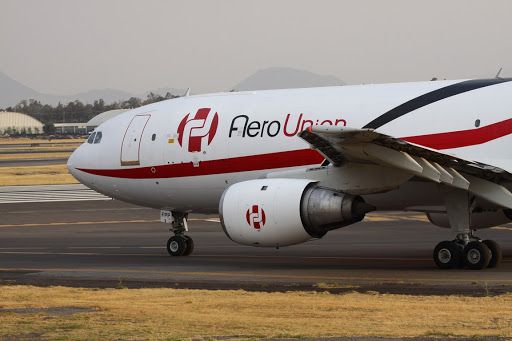Aeroméxico lost its share to Aerounión and Mas Air in the market for cargo transported in regular service by national airlines in Mexico from January to September 2020, according to data from the Ministry of Communications and Transportation (SCT).
While Aerounión registered an interannual fall of 8.1% in its cargo transport, to 57,800 tons; Mas Air had a decrease of 20.8%, to 41,000 tons.
For its part, Aeroméxico suffered a collapse of 51.9%, to 37,000 tons.
Given that the set of this service in Mexico provided by all airlines fell 25.4%, to 186,800 tons, Aeroméxico’s market share decreased, while the shares of Aerounión and Mas Air increased
Mexican commercial aviation and related demand for maintenance, repair and overhaul (MRO) have been driven by several factors, including the expansion of low-cost airlines such as Volaris and Interjet, the 2016 approval of the Delta-Aeroméxico partnership, the conclusion in 2015 of the Bilateral Air Transport Agreement between the United States and Mexico («Open Skies») and a greater use of Mexico as a regional center.
From 2016 to 2019, Volaris, Viva Aerobus and Interjet invested in new assets and modernized their fleets, absorbing a good part of the market share of the dominant traditional airline, Aeroméxico.
Aeroméxico
The biggest drop in this indicator was had by Interjet, with a drop of 71.3%, to 6,800 tons.
In turn, Aeroméxico Connet moved 8,900 tons (-35.5%), Volaris 10,700 tons (-24.1%), Estafeta 18,800 tons (-1%), Aeromar 200 tons (-60%) and Viva Aerobús 1,300 tons (without base of comparison).
The Covid-19 pandemic in Mexico began on February 27, 2020 and the first death from this disease in the country occurred on March 18, which subsequently led to containment measures, closures of productive plants, disruptions in the logistics and supply chains, and a crisis in the airline industry.
![]()

